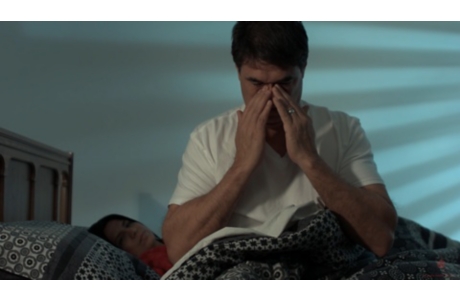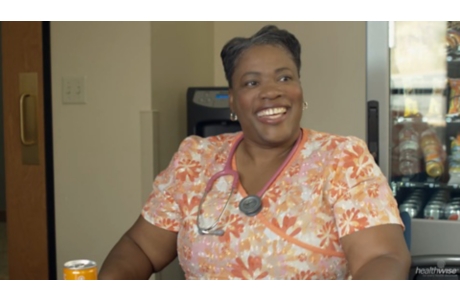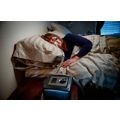Continuous Positive Airway Pressure (CPAP) Therapy for Obstructive Sleep Apnea
Treatment Overview
CPAP is a small machine that you use at home every night while you sleep. It increases air pressure in your throat to keep your airway open. When you have sleep apnea, this can help you sleep better, feel better, and avoid future health problems. CPAP stands for "continuous positive airway pressure."
The CPAP machine will have one of the following:
- A mask that covers your nose and mouth
- A mask that covers your nose only
- A nasal pillow that covers only the openings of your nose
What To Expect
It may take time for you to become comfortable with using CPAP. If you can't get used to it, talk to your doctor. You might be able to try another type of mask or make other adjustments.
Watch
Why It Is Done
CPAP is the most effective treatment for obstructive sleep apnea. It's the first treatment choice for adults and is the most widely used.
Watch
How Well It Works
CPAP works well to treat sleep apnea. If you use CPAP, you may:
- Be less sleepy when you wake up.
- Have lower blood pressure.
- Have a lower risk of accidents.
- Improve your sleep-related quality of life.
If you have a bed partner, they may also sleep better when you use CPAP.
Side Effects
Some people who use CPAP have:
- A dry or stuffy nose and a sore throat.
- Irritated skin on the face.
- Bloating.
Steps you can take
If using CPAP is not comfortable, or if you have certain side effects, work with your doctor to fix them. Here are some things you can try:
- Be sure the mask, nasal mask, or nasal pillow fits well.
- See if your doctor can adjust the pressure of your CPAP.
- If your nose or mouth is dry, set the machine to deliver warmer or wetter air. Or try using a humidifier. Follow the directions for cleaning the machine.
- If your nose is runny or stuffy, talk to your doctor about using a decongestant medicine or steroid nasal spray. Be safe with medicines. Read and follow all instructions on the label. Do not use the medicine longer than the label says.
- Your doctor may also help you with problems like swallowing air, bloating, or claustrophobia.
Talk to your doctor if you're still having problems. If these things don't help, you might try a different type of machine.
Credits
Current as of: July 10, 2023
Author: Healthwise Staff
Clinical Review Board
All Healthwise education is reviewed by a team that includes physicians, nurses, advanced practitioners, registered dieticians, and other healthcare professionals.
Current as of: July 10, 2023
Author: Healthwise Staff
Clinical Review Board
All Healthwise education is reviewed by a team that includes physicians, nurses, advanced practitioners, registered dieticians, and other healthcare professionals.
This information does not replace the advice of a doctor. Healthwise, Incorporated, disclaims any warranty or liability for your use of this information. Your use of this information means that you agree to the Terms of Use. Learn how we develop our content.



